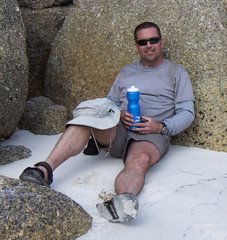Most of us love challenges. Some of us even like physical challenges. But when you can combine a challenge with a terrific cause - how good is that!
One of my friends from Melbourne (Dr) Sharyn Fitzgerald is a medical researcher by profession, a runner by passion, and a lovely and determined lady by nature.
Over the next few months she will run a marathon in the middle of Australia (Alice Springs) and in Antarctica. In fact, she will be the first Australian woman to complete a marathon in Antarctica.
She's doing it not just for the challenge, but to support a cause that she feels passionately and knows a lot about - the Centre for Indigenous Vascular and Diabetes Research.
PeopleTeamsLeaders Pty Ltd are really proud to be the first confirmed corporate sponsor of Alice 2 Antarctica. You can read more about Sharyn's efforts here and here. And of course, feel free to add your support to her very worthy efforts.
One of my friends from Melbourne (Dr) Sharyn Fitzgerald is a medical researcher by profession, a runner by passion, and a lovely and determined lady by nature.
Over the next few months she will run a marathon in the middle of Australia (Alice Springs) and in Antarctica. In fact, she will be the first Australian woman to complete a marathon in Antarctica.
She's doing it not just for the challenge, but to support a cause that she feels passionately and knows a lot about - the Centre for Indigenous Vascular and Diabetes Research.
PeopleTeamsLeaders Pty Ltd are really proud to be the first confirmed corporate sponsor of Alice 2 Antarctica. You can read more about Sharyn's efforts here and here. And of course, feel free to add your support to her very worthy efforts.




